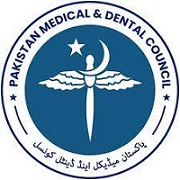DELAYS IN EARLY DIAGNOSIS OF PULMONARY TUBERCULOSIS IN PATIENTS REGISTERED WITH TB DOTS PROGRAMME AT DHQ HOSPITAL OKARA
Abstract
Background: Pakistan ranks as the country with the 8th highest burden of Tuberculosis globally, with an estimated incidence of sputum smear positive cases as 82/100000 per year and for all types as 181/100,000. Delay in early diagnosis of Tuberculosis has reaching implications by contributing towards the increasing mortality due to tuberculosis. Delay in diagnosis results in increased infectivity in the community contributing to the complications and overall mortality and hence a threat to public health. Case detections rate in Pakistan can only by improved by addressing the delay in early detection or case finding.
Objectives: The objectives of the study was to evaluate the factors associated with delay in early diagnosis of Pulmonary TB both, delays on the part of patients and the Health system
Subjects and Methods:
Study Design: Cross-sectional study
Study Setting: OPD of the DHQ Hospital Okara
Study Duration: From April 2016 – December 2016.
Sample Size: 90 patients referred to OPD were included in our study
Sampling technique: Non probability / consecutive sampling
Data Collection procedure: 90 patients of Pulmonary TB, attending were included in study. Data was collected through a Questionnaire, which was entered into computer using Epi info -6. Confidentiality of the data was ensured and proper consent was obtained before data collection.
Data analysis procedure: Data was entered and analyzed in Epi-info ver:6.1. Mean and standard deviation was calculated for numerical variables like age, duration of delays. Frequency and percentages were calculated for numerical variables like, gender, marital, education, occupation, clinical symptoms and reasons for delays.
Results: Around 73.5% patients were between 15-35 years of age with a mean of 30-75 years. Of these, 55% resided in suburban areas.. 90.9% patients consulted a private HCP in close proximity to the neighborhood of the patients and only 5.7% of them could make the diagnosis of tuberculosis. None of the patients consulted the NTP facility in the first instance. 5 Health Care Providers were consulted by every patient before the patient was referred to the DHQ Hospital Okara. The total Delay i.e. the time period from the onset of symptoms to initiation of treatment was a mean of 100.7 days. Patient delay i.e. the time period which the patient took from the onset of symptoms to seeking advice from a qualified doctor contributed to only 10% of this delay i.e. nearly 10 days. The health care component i.e. the time from seeking health care to diagnosis was a mean of 52.75 days. This was contributed mainly by the Private qualified doctor. The significant determinants to diagnostic delay included the stigma associated with the disease, the income (the lower the income, the longer the delay) as well as the time taken to reach the health facility.
Conclusion: Study concluded that health system is mainly responsible for linked the long delay between onset of symptoms and diagnosis and treatment of tuberculosis. Involving of GPs with the main stream NTP/PTP is mandatory to reduce the delay in diagnosis of TB.






